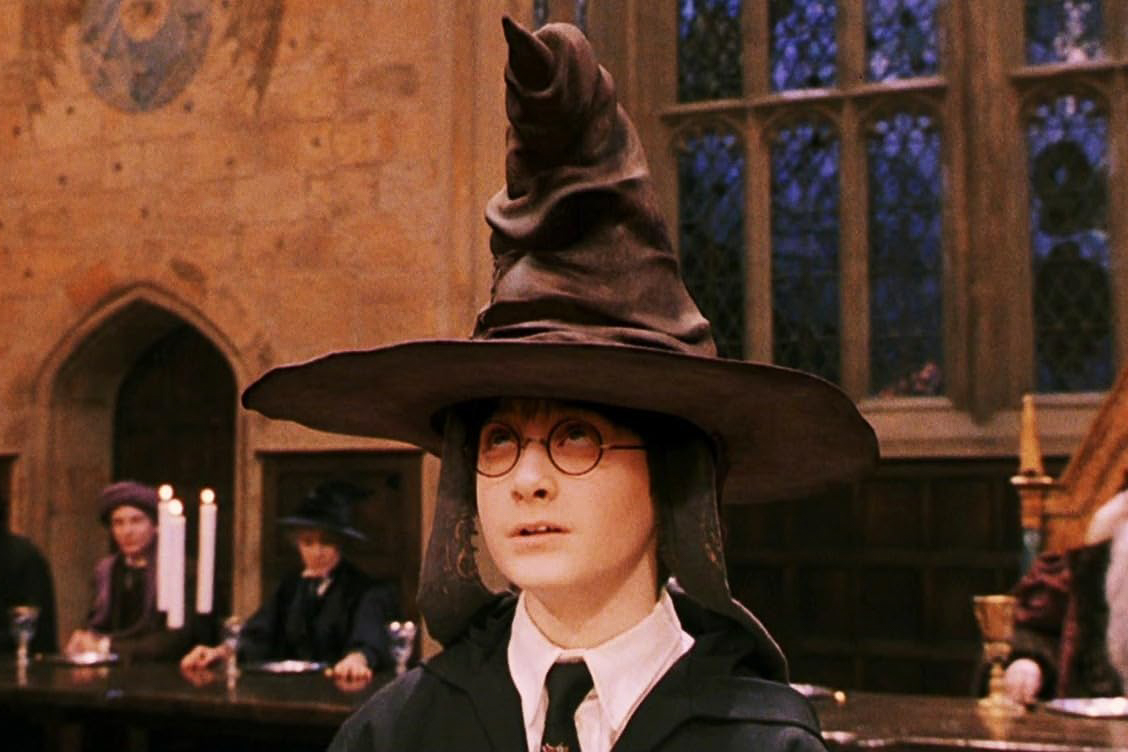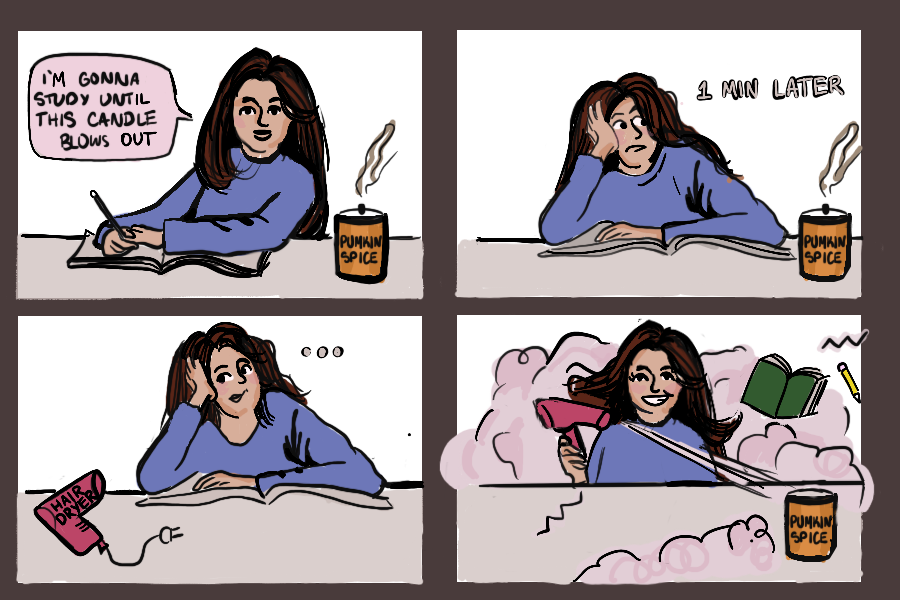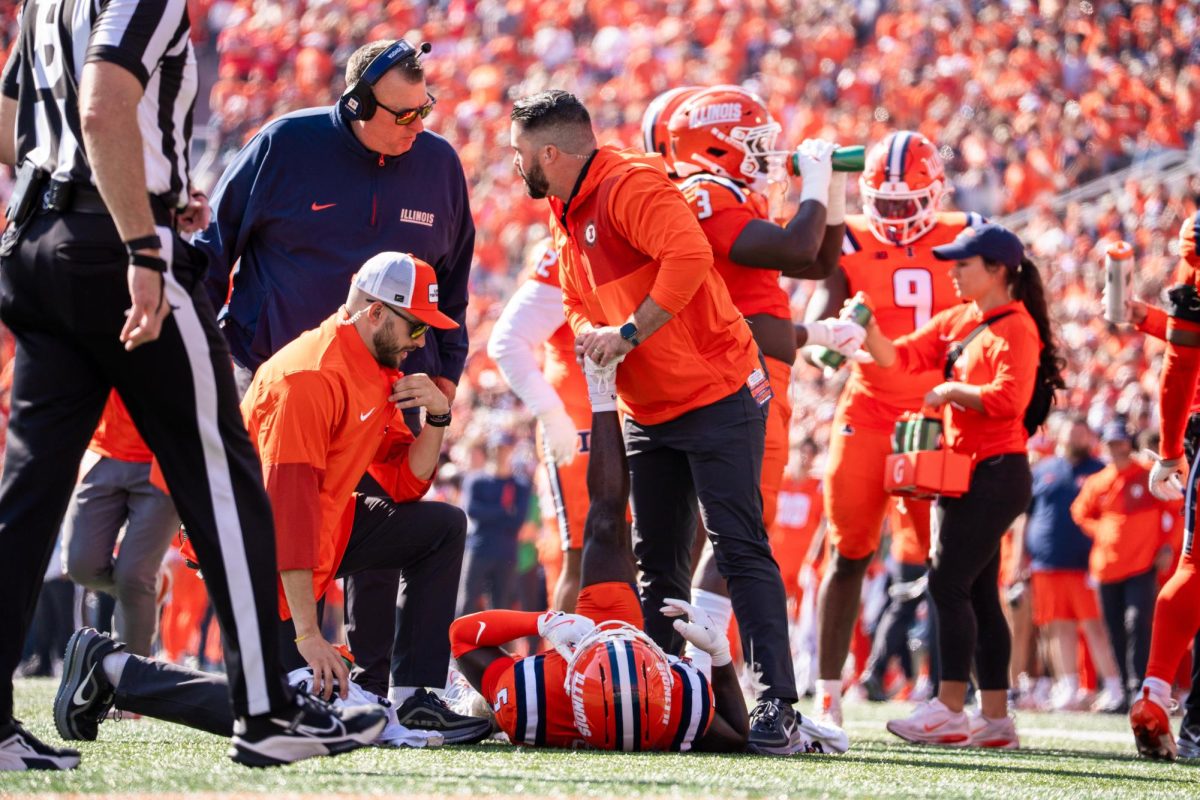**This article contains spoilers.**
Being a Potterhead is no joke. There is a certain “je ne sais quoi” to the fandom, and as I sit here writing in my Ravenclaw pajama pants from Hot Topic, I am certainly not exempt from that oddity.
Naturally, when I picked up “Harry Potter” in third grade, I was immediately enraptured. The fantastical world created a haven I could escape to whenever and wherever I wanted.
I was about as textbook of a child nerd as possible — I loved to read to the point where I didn’t do much else, and my mom often had to drag me outside for the sake of maintaining relatively healthy levels of vitamin D.
Get The Daily Illini in your inbox!
When I was forced to go outside, I would bring a book and read.
“Harry Potter” was the first series that resonated with me to the point of fangirl obsession. I lived, breathed and probably even dreamt about the books as I read them countless times.
There was even a point where my mom had to hide the books from me for a few months until school got out because I simply was not doing my homework for the sake of reading “Harry Potter.”
Needless to say, I borrowed copies from friends and the library and resorted to reading under my sheets at night.
Last Thanksgiving break, I made the bold decision to take on rereading the series. It had been something I wanted to do for ages, but every time I tried, I couldn’t get past the first book.
Don’t get me wrong, the first book is fantastic, but something about reading about Mr. and Mrs. Dursley of number four Privet Drive and how normal they were — thank you very much — felt so familiar, it dragged.
After an oral surgery that left me only eating mashed potatoes on Thanksgiving, Harry Potter and his adventures were the perfect morale booster to keep me going.
I had the first three books just about memorized, so getting through them was more nostalgic than intellectually stimulating, but it was in “The Goblet of Fire” that I realized just how much I’d missed at nine years old.
J.K. Rowling, despite being a TERF, was a masterful world-builder, catering to audiences of all ages to the point where my reading this time felt entirely different than before.
Either way, I compiled a list of my primary observations and takeaways from rereading the series from an adult perspective. They are as follows:
1. Wizard politics are real!
The corruption of the Ministry of Magic flew right over my head in elementary school, but reading about Cornelius Fudge’s adamant refusal to accept that Voldemort — I feel like I’m allowed to say his name — returned was abhorrent.
The framing of Harry as a crazy person for maintaining political peace felt a little too relatable for my taste; I generally read fantasy to escape the terrors of today’s political climate, not to be reminded of it.
Side note: There was an international trade debacle over flying carpets in “Goblet of Fire,” which I found incredibly entertaining.
2. Wizard racism is… also real?
Yes, Dobby is arguably one of the best characters in the series, but that doesn’t change the insanity of how wizards treated sentient magical creatures.
From the enslavement of house elves to the disdain for centaurs, Hermione did not deserve the amount of hate she got for starting S.P.E.W. Honestly, I’m surprised no one had tried to do anything before her. Dolores Umbridge’s blatant racism led her to be attacked by centaurs more than anything else.
Kreacher also had an awesome redemption arc. I appreciated the Golden Trio’s brief stint living with him at 12 Grimmauld Place in “Deathly Hallows.” Not only did he do a full 180 but he rallied the entire Hogwarts house elf population to fight against Voldemort in the Battle of Hogwarts.
3. I have new favorite characters — shoutout Ron Weasley and Horace Slughorn.
I find the fact that there are Ron haters out there personally offensive. Weasley is our king, and I will stand by that until the day I die. Not only was he an amazing friend to Harry, but his love story with Hermione and loyalty throughout the series was amazing. I don’t blame him for getting annoyed sometimes about being the sidekick, but I also wish he knew how valuable he truly was.
Honorable mention to Professor Slughorn, who was such a captivating character in my reread. I appreciated the different perspective of what a Slytherin could look like, and I enjoyed his silly Slug Club. At the risk of sounding like a pick-me, I would probably hope to be in it if I was at Hogwarts.
4. I kind of see where Dumbledore was coming from.
Before you attack me, this is not me condoning his treatment of Harry or any other morally gray actions he committed. However, I don’t blame him for trying to protect Harry and his friends from the horrors that inevitably awaited them. Sure, he could have told 11-year-old Harry that his enemy split his soul into seven parts, but that would have been some heavy stuff for poor little orphan Harry.
Do I understand why Dumbledore left out some blatantly important information for the Golden Trio’s Horcrux hunt? No. Do I understand the concept of the greater good? Yes. Please don’t get me confused with Gellert Grindelwald, but Harry was prophesied to either kill or be killed at the end. Protecting Harry’s innocence was imperative to his ability to grow up with the necessary emotional and social intelligence for his final quest.
Overall, Dumbledore is very complex, and I would eat up a prequel story about him — not the “Fantastic Beasts” movies though, anything but the “Fantastic Beasts” movies — but J.K. Rowling had a knack for creating controversy over the morality of her characters.
5. Snape needed to chill.
If it came down to me, I don’t think I could ever support Snape’s incessant bullying of Harry, Neville and their other Gryffindor friends. Sure, it sucks that he was bullied by James Potter and Sirius Black in school. Sure, it sucks that Lily Evans chose to become Lily Potter rather than Lily Snape. Sure, it sucks that he didn’t have a proper hair care routine. Is that enough to justify borderline abuse of students? Not to me.
Snape was never really protecting Harry; he was protecting the bit of Lily that lived on in her son. He did a great job as Dumbledore’s secret agent, but he didn’t offer much else besides snide remarks and ceaseless Saturday detentions.
I’d argue his one redeeming moment was killing Dumbledore. When Snape was faced with Dumbledore begging him, “Severus, please,” at the top of the Astronomy Tower, he knew the pleading was for an act of mercy, death. Snape also saved Draco from some major trauma. That poor kid had enough going on already.
—
I could probably write another thousand words about my love for the craftsmanship of this series and how reading it as an adult was an illuminating experience, but I’ll spare you the details.
For now, I’ll keep the rest of my opinions to myself and let you ruminate on the five takes I’ve left you with. Whether you agree or disagree, the Harry Potter series is undeniably one of the most iconic literary sensations of our generation.
Please feel free to send arguments to my inbox. This is my favorite avenue of discourse.







